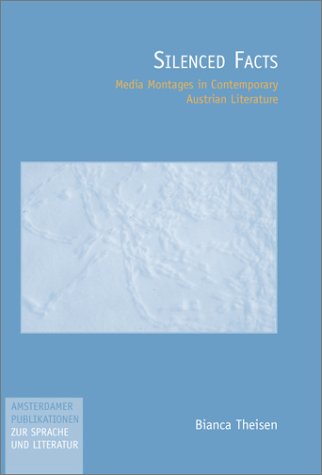Amsterdamer Publikationen zur Sprache und Literatur
1 primary work
Book 152
In response to the silence that continues to shroud Austria's historical past, Austrian literature after 1950 wants to retrace an untold history that left its marks in mental schemata and cultural cliches. The question how literature can refer to the facts silenced by a political unconscious, the question of literary reference and reality description, lies at the core of Austrian literature since the 1950's.
This book traces the development of contemporary Austrian fiction from the 1950s to the 1990s, showing how the Vienna Group's literary reductionism led to gesture of mere pointing in happening and performance. While strongly indebted to the experimental techniques of the Vienna Group, later Austrian authors such as Thomas Bernhard, Peter Handke, Peter Rosei, and Gerhard Roth employ literary forms and extra-literary media prone to the indexical in an attempt to cut through the net of linguistic and cultural cliches, alluding to the microfascisms latent in common percepts, and indexing a reality that eludes plain description.
This book traces the development of contemporary Austrian fiction from the 1950s to the 1990s, showing how the Vienna Group's literary reductionism led to gesture of mere pointing in happening and performance. While strongly indebted to the experimental techniques of the Vienna Group, later Austrian authors such as Thomas Bernhard, Peter Handke, Peter Rosei, and Gerhard Roth employ literary forms and extra-literary media prone to the indexical in an attempt to cut through the net of linguistic and cultural cliches, alluding to the microfascisms latent in common percepts, and indexing a reality that eludes plain description.
